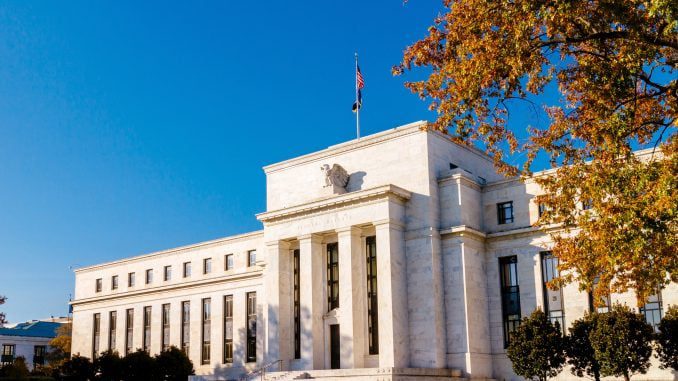
Central banks are usually thought of as very conservative institutions; if they were cars they would be safe, family sedans. Lately, though, some central banks have been doing the market equivalent of zipping around in a sporty convertible. In recent years, at least two large central banks have been snapping up large quantities of equities, typically considered a risky investment.
The Swiss National Bank now has about 20 percent of its reserves in equities, up from about 7 percent a decade ago. More than half of that is in U.S. equities. And to say that the Bank of Japan (BOJ) has become a player in that country’s equity market is an understatement; BOJ currently owns nearly 75 percent of the Japanese exchange-traded fund (ETF) market, again up sharply from just a few years ago. Other central banks, including the European Central Bank and South African Reserve Bank, also make similar purchases, although Japan and Switzerland are the most aggressive buyers of equities.
If the idea of a central bank owning a significant amount of stock in a company sounds strange to you, that’s hardly surprising. In the United States, for example, the Federal Reserve Bank is legally prohibited from owning equities, and instead invests its reserves in bonds and other government-backed securities.
Some other countries, obviously, have different rules in their bank charters, and modest equity holdings have been a central bank strategy for years. Even so, the practice of central banks owning significant shares of equities is a very recent phenomenon. So why is it happening now, and what kind of risks does this unprecedented trend carry?
In the case of Japan, the motive is clear: for decades the country has had difficulty sustaining economic growth, and the Bank of Japan has already exhausted more traditional forms of stimulus, such as interest rate cuts and bond purchases. Both Prime Minister Shinzo Abe and BOJ Governor Haruhiko Kuroda have been at pain to stimulate growth and defy expectations of deflation.
Switzerland’s bank, by contrast, seems to be acting more like an aggressive individual investor: it has been buying stocks because that is where money is to be made. Unbeknownst to many American investors, the Swiss National Bank is a significant shareholder in well-known American firms like Amazon, Apple, Facebook and Microsoft. (Overall, a little more than a fourth of the U.S. stock market is owned by non-U.S. shareholders, but the Swiss bank’s high concentration is unusual.)
For many companies, the only larger shareholders than the Swiss central bank are institutional players like Vanguard and Blackrock. And, as Dave and Helen Edwards have pointed out, those companies hold investments for lots of individuals and institutions – meaning that the Swiss National Bank in many cases is the largest individual fund.
The equity strategy has certainly had some benefits. Curiously, the Swiss central bank is actually traded as a stock (SWX: SNBN). After many years of staying near 1000 CHF ($1013) a share, in recent years it has risen as high as 8000 CHF ($8106); the spike in price corresponds roughly to the time the bank began buying equities in bulk. Japan has not fared as well; its GDP contracted in the first quarter of 2018 after about two years of growth. (Its central bank’s stock, however, is having a good year, up about 20 percent since January.)
Still, the equity strategy is not without risks. Equity markets can take dramatic downward turns quickly, and if a central bank was seen as panic selling it could easily accelerate an equity market downturn. True, during market selloffs central banks usually try to add liquidity to the market, not remove it. But the world has yet to witness a significant stock market slide in which central banks were major shareholders. And even without a broad market downturn, central banks might affect equity prices if they decide to reduce their holdings for other reasons (such as strengthening or weakening their national currency).
Moreover, given that central banks can effectively create currency by keystroke, the idea of instant money converting into company stock strikes some observers as a likely recipe for inflation. (In Japan’s case, a little inflation might indeed be the goal.)
Central bank stock ownership also carries a corporate governance complication. A central bank that owns a substantial amount of equity in a company has, at least in theory, some responsibility for how the company is run. But the idea of a private-sector company being even partially directed by a central bank is fraught with potential conflicts of interest, and is at odds with the way that most developed nations have conceived of the relationship between markets and state institutions over the last several decades. The alternative – ownership with no responsibility – is hardly more appealing.
For the time being, the equity strategies being pursued in Switzerland and Japan don’t appear to be burning political issues in either country. But no equity markets go up forever. A downturn in stocks could create a very thorny situation in which central banks have to liquidate their portfolios, with consequences that are hard to predict.
James Ledbetter is the editor in chief of Inc. magazine and Inc.com. He is the author, most recently, of “One Nation Under Gold: How One Precious Metal Has Dominated The American Imagination For Decades.”



